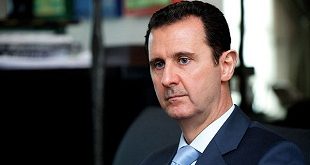
By Prof. Venansius Baryamureeba
What appears as resistance to college formation is nothing other than some individuals hiding under trivial issues to protect their interests.
The idea of turning Makerere University into a collegiate was first discussed by Makerere University Council during the tenure of Professor William Senteza Kajubi as Vice-Chancellor of Makerere University. In early 2000, during the tenure of Professor Ssebuwufu, Vice-Chancellor of Makerere University, it was resurrected and discussed.
The Makerere University Strategic Plan 2000/2001-2006/2007 identified and recommended the transformation of faculties, institutes into larger colleges as one of the strategies to improve on the efficiency and effectiveness of the overall organisation and management, following the expansion of student enrollment and competition from the growing number of private universities in Uganda.
In May 2000, Makerere University Council approved the Makerere University Statute for Constituent Colleges that was prepared by a committee headed by Prof. Oloka Onyango, a Professor of Law and former Dean of the School of Law. So the above college statute and the Universities and Other Tertiary Institutions Act 2001 provided the legal framework to begin the process of college formation. In an effort to operationalise the Makerere University Strategic Plan 2000/2001-2006/2007, one of the development partners, NORAD, provided funding to specifically enable Makerere transform into a collegiate university. With the NORAD funding, Vice-Chancellor Prof. Ssebuwufu set up a committee of 11 members chaired by Prof. Edward K. Kirumira, former Dean of the Faculty of Social Sciences and now Acting Deputy Principal of the College of Humanities and Social Sciences. NORAD also provided a consultant, A. Ronningen to work with the committee which submitted its final report on 18th November 2004 to Makerere University Vice-Chancellor Prof. L.S. Luboobi. Having been appointed to that position on 1st June 2004. The report contained policy guidelines on college formation.
Makerere University Council at its 101st meeting on 24th March, 2005 approved the policy on formation of colleges and devolution of powers at Makerere University. The policy provided for the principal of college structure, organisation level/ structures, criteria for mergers, phases of implementation, and resource allocation. What is important to note is that this policy provided for a three-level college structure; centre, college and department. The level of the schools/faculties was eliminated in the college structure. That means there would no Deans for schools. On implementation, a pilot phase was recommended and the colleges that were to be piloted were those of Health Sciences, and Humanities and Social Sciences. The College of Health Sciences was indeed created and piloted but the one of Humanities and Social Sciences only stopped at the establishment document and never took off. Furthermore, Makerere University Council at its 101st meeting held on 24th March, 2005 approved a pilot period of two years after which all units were to transform into colleges. Council put in place a taskforce headed by Prof. Lillian Tibatemwa-Ekirikubinza, the then Deputy Vice-Chancellor to study the proposals on college formation. The deadline for all units to transform into colleges passed in 2007, and still we had only one college; College of Health Sciences. At this point, the then Vice-Chancellor Prof. Luboobi realised that units were not willing to merge on their own into colleges and put in place another committee titled: “University Research, Academic, Administrative and Financial Reforms Committee chaired by Dr Barnabas Nawangwe, former Dean of the Faculty of Technology and now Acting Principal of the College of Engineering, Design, Art and Technology. This reforms committee is mainly supported by Sida which has also provided KPMG as the consultants for the university reforms. The committee had a subcommittee on college formation chaired by Dr Edith Natukunda that was guided by the Makerere University Statute 2006 (amended). The reforms committee that has been meeting for over two years is well constituted and includes all stakeholders of Makerere University. For instance Makerere University Academic Staff Association is represented on this committee by its Chairman, Dr Tanga Odoi.
The reforms committee, after thorough consultations through workshops and seminars and staff of all academic units, submitted to Senate the academic units that had agreed in principle to merge into colleges. Senate and Council unanimously approved the proposals in October 2010. Thereafter, the Vice-Chancellor, Prof. Venansius Baryamureeba appointed Chairpersons for the seven colleges to lead in the drafting of the proposals for the colleges. In December 2010, Senate approved the proposals of colleges and recommended them to Council for final approval. Makerere University Council sat on 13th and 17th December 2010 and approved them.
On 4th January 2011, Makerere University Management approved the names of the Acting Principals and Deputy Principals for the seven colleges and recommended them to Council for final approval. Makerere University Council at its meeting on 11th January 2011 unanimously approved the acting Principals and Deputy Principals for the seven colleges since the 8th college, the College of Health Sciences, already had the Principal and Deputy Principal appointed. The Acting Principals and Deputy Principals were appointed to plan for the establishment of the new colleges as Constituent Colleges of Makerere University. As part of this transition, a work plan with clear timeframes was put in place by Makerere University Council that would ensure that committees, structures and systems are in place by 1st July 2011 to ensure full implementation of the colleges. In fulfillment of this plan, the process to have Deans and heads of departments appointed commenced. Deans of all the schools in the colleges were appointed on 1st February 2011 and heads of departments on 1st March 2011.
As per the college statute and policy on college formation, schools in colleges are optional. The only required units are the departments. So the College Statute ensured that the Principal is the Chief Executive of the college and as such he/ she is responsible for academic, administrative and financial affairs of the college. Further, the Principal is assisted by the College Bursar in the management of finances and the College Human Resources Manager in general administration and HR matters, procurement officer on procurement matters among others.
In the proposals for colleges, units insisted on having a four-level structure instead of three-level one and as such we ended up with the centre college, school and department levels. In this case Deans of Schools were introduced to coordinate and manage the departments through heads of departments i.e. Deans in Colleges are responsible for academic matters and do not handle finances, procurements and other administrative activities outside academics. As a result all school and departmental accounts were closed and we now have one bank account per college to handle internally generated funds (appropriation in aid). So for colleges where the serving Deans at the time of formation of colleges were either appointed Principal or Deputy Principal the transition into a college has been smooth. This is evident in the College of Agricultural and Environmental Sciences; College of Natural Sciences; College of Engineering, Design, Art and Technology; and College of Business and Management Sciences. In the College of Computing and Information Sciences; College of Education and External Studies; and College of Humanities and Social Sciences the Acting Principals were not sitting Deans. Further in the College of Computing and Information Sciences and College of Humanities and Social Sciences the Acting Deputy Principals were not sitting Deans. With the powers of handling finances, procurements, recruitment being vested in the Principal assisted by the Deputy Principals some Deans who did not make it to these positions have had to put up a spirited fight in most cases indirectly through their colleagues all in the name of controlling resources, mainly financial resources.
Was the process for coming up with the Acting Principals and Deputy Principals free and fair? The Makerere College Statute requires that for someone to be appointed Principal he/she should be at the rank of either Associate Professor or Professor and must possess proven managerial experience. So for one to be an acting Principal we ensured that the person had served as Dean/ Director for at least four years due to the fact that Principals manage other managers and experience at the level of Dean/ Director was essential. For continuity, the chairperson of the draft committees of the college establishment documents preferred acting Principals to continue with the implementation. The Makerere University College Statute requires that for someone to be appointed Deputy Principal he/she should be at the rank of at least senior lecturer and must possess proven managerial experience. So where there were candidates who met the requirements for Principal and had not been appointed Acting Principals they were considered for Acting Deputy Principal. In order to allow for the transition, the Principal and Deputy Principal were appointed from different discipline groups. This requirement led to the leaving out of some sitting Deans for the positions of Acting Deputy Principals since their disciplines were similar to those of the acting principals. As a university we ensured that we appointed the best. As the saying goes, many are called but few are chosen.
We all know that by human nature, change is always resisted at the beginning. Makerere University Strategic Plans since 2000 have all continued to indicate that Makerere should transform into a collegiate university. It is now 11 years since college formation was given priority in the 2000-2008 strategic plan and it’s still a priority in the 2008-2018 strategic plan. Therefore, planning for colleges had to stop so that implementation could begin. Needless to mention several Vice-Chancellors including Professor William Senteza Kajubi, Professor George B. Kirya, Professor P.J.M. Ssebuwufu, Professor L.S. Luboobi and now Professor V. Baryamureeba have all been involved in the planning process for the college formation and at all times have ensured that the process is open and consultative. Reforms cannot remain unimplemented forever. Someone must say the time is now or never.
In any reform process within the university there will always be university interests, college interests, school interests, departmental interests and individual staff interests. What appears to be resistance to college formation is nothing other than some individuals hiding under trivial issues to protect their interests, which are mainly of a financial nature. The most important thing is to balance these interests and ensure that individual interests do not override institutional interests. We have set up a Change Management Committee headed by Professor Samuel Kyamanywa, the Principal of Makerere University College of Agricultural and Environmental Sciences.
As a university, we are committed to implementing colleges, which are already operational, and there shall be no reversal in policy of Makerere operating as a collegiate university. The research, academic, administrative and financial reforms at Makerere University are on course and the constituent colleges of Makerere University will be fully implemented by 1st July 2011, which date is expected to symbolise the climax of the reforms. The benefits of Makerere University transforming into a collegiate university outweigh the individual interests and the interests of the university shall prevail.
Let us all work together to fix the gaps so that as years pass by, Makerere University becomes the best university in Africa and regains its past glory as the Harvard of Africa.
Professor Venansius Baryamureeba is the Vice-Chancellor of Makerere University
 The Independent Uganda: You get the Truth we Pay the Price
The Independent Uganda: You get the Truth we Pay the Price


